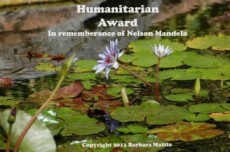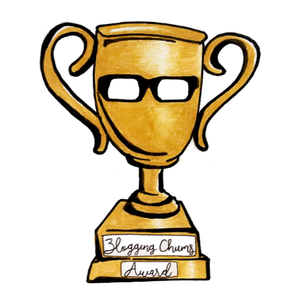This Month In Black American History – Rev. Abraham Lincoln DeMond
 BY GUEST BLOGGER, YAHTZEEBUTTERFLY
BY GUEST BLOGGER, YAHTZEEBUTTERFLY
On January 1, 1900 The Rev. Dr. A. L. DeMond welcomed the new year and the new century with a speech which he delivered at the Dexter Avenue Baptist Church (later to become pastored by Dr. Martin Luther King) in Montgomery, Alabama. Were it not for the Emancipation Proclamation Association publishing his speech pamphlet form, we might never have learned of Rev. DeMond or of his speech titled “The Negro Element in American Life, An Oration.”
Those members of the Dexter Avenue Baptist congregation in attendance on New Year’s Day in 1900 were treated to an oration which honored past and contemporary African Americans who championed freedom for slaves and civil rights for freedmen, as well as those African Americans who served in the U.S. Congress and in state legislatures, who advanced the education of African Americans, and who were great lawyers, doctors, military officers, writers, and artists.
Rev. DeMond asserted:
“There has never been a time since this nation was founded, so terrible in its oppression, so awful in its conditions, so cruel in its prejudices, but that Negro manhood, genius or bravery has been able to assert itself.”
His full speech can be found at Antislavery.eserver.org.
| The Negro Element in American Life.The Negro Element in American Life AN ORATION DELIVERED BY REV. A.L. DeMond, IN THE Dexter Avenue Baptist Church, Montgomery, Alabama, Jan. 1, 1900. |
Here is an excerpt:
“In every hour of test the Negro has exhibited those qualities which the world needs and must recognize. The past history of the Negro in this country has shown that he possessed elements of strength and power which, regardless of all that might be brought to bear against him, cannot be crushed, killed or conquered. And if our presence in this country up to the present time has done nothing more than to demonstrate that the race has will power, genius, talent and industry, we should be thankful and our friends may well rejoice with us.
“The Negro has both directly and indirectly been an influential element in American life. He has been the object of love and hatred. For him laws have been enacted and repealed. Over his status in the body politic the most noted debates and controversies have been waged and political parties have been organized. Their position on the Negro question was sought to be made the pass word of states into the Union. The sentiment for or against slavery divided this country into two sections, the one hostile to the other, each contending for the mastery. The Negro became the political platform upon which aspiring statesmen stood or fell. Congress has spent months with the problem; legislatures have devoted their time to it; constitutional conventions have found it the most weighty question for their consideration; the churches have all had it, and the Negro has split the Presbyterian church and divided and sub-divided the Methodist church. There is not a denomination in the United States that has not been affected by the presence of this element. No other theme has been so productive of discussion on the lecture platform, through the press, on the rostrum and in the pulpit. During the heyday of the New England Lyceums no subject was more popular than that of the Negro.”
Born in Seneca, New York in 1867, Abraham Lincoln DeMond graduated from the State Normal School in Cortland, New York in 1889 and received his degree in theology at Howard University Seminary. The Charlotte Observer on October 1, 1895 noted that Rev. DeMond was ordained to the gospel ministry in Fort Payne, Alabama in 1891 where he became pastor of the Congregational Church.
Over the years Rev. DeMond served as a pastor in Fort Payne, Alabama, New Orleans, Louisiana, Charleston, South Carolina, Memphis, Tennessee, Macon and Byron, Georgia, Buxton, Iowa, and North Carolina. Various newspaper articles indicate that he was very active in Congregational Association meetings. The March 28, 1906 Times-Picayune newspaper announced that Rev. DeMond would deliver several addresses at the Alabama State Congregational Association that was meeting in Mobile the following week.
I have been able to locate an article that Rev. DeMond wrote for the Iowa State Bystander newspaper, an African American four-page weekly, on August 3, 1906. Because the print is small, I have typed a copy to post here of the full article to preserve it:
The Negro in the Congregation Churches of America
By Abraham Lincoln DeMond, pastor First Congregational Church, Buxton, Iowa.
“Congregationalists began the first systematic effort for the education of the Negro. Their first school was opened on the 17th of September,1861, at Hampton, Va. The importance of that fact was to be seen at a later day. That school was the first day school opened among the colored people, and it developed into Hampton Institute of which Booker T. Washington is a graduate. Two schools were opened at Norfolk, Va., Beaufort, and Hilton Head, S.C., and representative of our denomination took up the work as they opened elsewhere. The National Association of Congregational Churches met in Boston in the year 1865, and recommended that the churches raise $250,000 for work among the freedmen. District secretaries were appointed at Chicago, Cincinnati and Boston and collecting agents were sent out among the churches. More than the stated amount was raised. By the year 1870 there were 533 teachers employed.
“Fisk University, founded January 8, 1866, was the first Congregational College established for the higher education of Negroes. Among its long list of graduates today we find such names as Mrs. Booker T. Washington, Dr. W.E.B. Dubois and Rev. George W. Moore,which amply justify the faith of its founders in the possibilities of the Negro. After this followed Talladega college in Alabama, Tougaloo University in Mississippi, Straight University in Louisiana, Tilliotson college in Texas, Howard University in Washington, D.C., and many other graded and common schools in other parts of the South.
“The work of organizing churches followed naturally after the planting of the schools. The pastors of these churches were mostly white Congregational ministers from the North who ministered faithfully unto the people and did work that made present conditions possible. Some of them have gone out of the work and some have passed from the world, but they have left pleasant memories among those with whom and for whom they labored.
“The work of the church planting in the South, for many reasons, grew much more rapidly than in the North where some of our people worshipped in the white Congregational churches. In the South, the Congregationalists represented to the eyes of the people the great free North out of which came all good things, the teachers and preachers were men and women whose personal efforts counted for much in winning those whose confidence in the Yankee was as sincere as the faith of a child. Also they were in the midst of thousands of colored people, which gave them ultimately opportunity for succeeding in their mission.
“In 1866 St. Paul’s church at New Iberia, La., and the church at Corpus Christi, Texas, were organized, the two earliest children of our denomination among the Negroes south of Mason and Dixon’s line,” [article just ends there]
I have not be able to find any other writing by Rev. DeMond. No doubt he would have had to have written more. I have so many questions…Did he join the NAACP once it was founded and did he write any articles for its publication? Are there any of his sermons buried in church attics? Where were his parents born? Were they always in the North or did they move there after the Civil War? I think we can assume that they bestowed the name “Abraham Lincoln” on their son to honor the great emancipator Abraham Lincoln.
Perhaps one of you reading this might be able to uncover more and share it with us. Wikipedia has a few details about his family and early life as well as his marriage to music teacher Lula Watkins Patterson with whom he had four children. I wonder if Howard University Seminary has any biographical information or any of his papers in their archives.
Posted on 01/04/2017, in Black History Month and tagged Abraham Lincoln DeMond, Black American History, Howard University Seminary, The Negro Element in American Life. Bookmark the permalink. 15 Comments.







































Thank you for this YAHTZEEBUTTERFLY!
LikeLike
You are welcome, Mindy 🙂
LikeLike
I’ve searched briefly and can’t find the answers to your questions.
LikeLike
Thanks for searching, Mindy.
I was able to learn that Rev. A. L. Demond’s daughter, Michelle, moved to Washington, D. C. in 1932 with her mother after her father’s death. She was a researcher for historian Carter Woodson’s Association for the Study of African American Life and History.
Michelle and her husband John Preston Davis gave their son Michael the “Demond” family name as his middle name. Michael Demond Davis, a Pulitzer nominated journalist, was presented with a NAACP award for his reporting on the Vietnam War.
There is an excellent article about Michael Demond Davis at this link:
http://johnpdaviscollection.blogspot.com/2011/08/from-baltimore-to-battle-michael-demond.html
http://johnpdaviscollection.blogspot.com/2011/08/from-baltimore-to-battle-michael-demond.html
Photo of Michael Demond Davis
LikeLiked by 1 person
Photo of Michael Demond Davis
LikeLike
Reblogged this on The Militant Negro™.
LikeLike
Thank you very much for the reblog.
LikeLike
Dear Yahtzeebutterfly,
I enjoyed reading your informative post about Rev. Abraham Lincoln Demond. His words spoken in 1900 is still resonant in today’s world.Thank goodness for those who have taken steps to preserve Black History events, but one does wonder about how much was lost.
Thank you for doing your part and hugs, Gronda
LikeLike
Dear Gronda,
I am so glad you enjoyed the article and appreciate your pointing out that his speech is still relevant today.
Thanks for your kind words. 🙂
LikeLiked by 1 person
Reblogged this on Espiritu en Fuego/A Fiery Spirit and commented:
This Black History/American History information is still very relevant for our modern times. Rev. Demond is one of many Great African Americans not recognized by slanted views of traditional American History. Please read and leave comments on the original blog: https://blackbutterfly7.wordpress.com/2017/01/04/this-month-in-black-american-history-rev-abraham-lincoln-demond/
LikeLiked by 1 person
Hi Dancingpalmtrees,
Thank you so much for the reblog and your comment!
I wish you a wonderful New Year!
LikeLike
Reblogged this on Charles Ray's Ramblings and commented:
A predecessor to Dr. Martin Luther King, Jr.
LikeLike
Thanks for the reblog CharlesRay.
Have a great weekend!
LikeLike
At the link below you can see a February 23, 1918 telegram sent by Rev. and Mrs. A. L. DeMond to W.E.B. Dubois congratulating him on his 50th birthday:
http://credo.library.umass.edu/view/full/mums312-b011-i193
LikeLike
Pingback: This Month In Black American History – Rev. Abraham Lincoln DeMond – Espiritu en Fuego/A Fiery Spirit